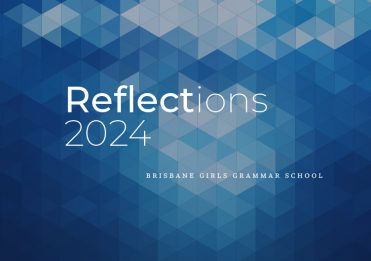When and how did you first know you wanted to become a doctor?
In what is quite a classic tale of the pathway to medicine, I have wanted to be a doctor for as long as I can remember.
I was diagnosed with a congenital heart defect—Tetralogy of Fallot—at birth, but after seven and a half hours of open-heart surgery, I was gifted a normal life expectancy. Thus, I have been able to witness the impact that truly great doctors have had on me, and this quickly became my why.
I remember asking my parents one day at the age of three, ‘who fixed me?’, and they replied, ‘a group of great doctors’. My response, in a very binary fashion was, ‘I will do that’—without any understanding of training pathways, nightshifts, study and academic pressures.
It was the 3 am Emergency Department visits, copious follow-up appointments and series of tests while I paraded around in a hospital gown and disposable shoe covers that guided me on my way to a career in medicine.
You have a particular interest in policy development and governance, having authored a number of policies for the Australian Medical Students’ Association (AMSA). Given the ever-changing landscape of medicine, why is policy reform and governance so critical?
In my experience, when we look at Emergency Departments, they accurately reflect how well our health system is functioning. From the formative years of learning the theory of medicine, we step onto the hospital floor to practice it through systems governed by policy. Like a good pitch in a football stadium, or concert hall for a performance, the structures around you must adapt and support the work within. Whether that is hospital or private practice, the frameworks around Medicare, medications, and vaccinations are all set out by previous policies that constantly need to be revised to reflect our emerging situations.
To be a good advocate for your patients, you have to be adaptable and champion that change for your working conditions and for the care of those you treat.

At our 2023 Annual Speech Day and Distribution of Prizes Ceremony, Alexandra was awarded the Dr Mary Mahoney AO Prize for Leadership, a prize awarded to a student or recent graduate who is a young woman of strength, integrity and humility, and personifies the ideals of intellectual endeavour, women’s progress and authentic leadership
You are also passionate about reinforcing gender discussions in healthcare and mental health prevention strategies. What would you like to see changed?
For this and the following question, I will use the terms female/male and women/men in the context of the discussions in medicine around females entering the workforce. However, I would like to acknowledge that gender takes on many identities and these experiences and discussions must include all women, men, female and male-identifying, and non-binary individuals.
I will summarise it through my experiences of attending the World Health Assembly earlier this year. We have a cohort of leaders—predominantly male—who may have never stepped foot into a clinic room, but are leading a workforce comprising predominantly women (all healthcare professions).
I want us to step away from solely thinking we can rely on marketing and empowering campaigns to ‘elevate women’ and actually allow them to sit at the table to inform the healthcare system they tirelessly work in. Additionally, investment in women in leadership roles, research and data collection, and women-led health initiatives are easy steps forward.
What has been your own experience as a woman in the medical industry?
My experience has been both encouraging and demoralising. Preconceived notions of a ‘boys club’ for medicine, and some specialities like surgery, have been mostly stripped away, with leading consultants of all genders encouraging my own and other students’ progression through the field. I have walked into operating theatres for an orthopaedic case and had the whole medical team (yes, male) shake my hand and encourage my attendance and academic queries.
Additionally, bittersweet moments occur when you are complimented for being a woman in medicine. This can be a hard pill to swallow even though it is built on encouragement and support.
The flip side is that discouraging events have mostly occurred with patients. Sexual harassment from patients can be rife, and sometimes you cannot hide from being referred to inappropriately, snickered at, or having inappropriate requests made. Notably, staff (both male and female) never tolerate this behaviour and will support students and colleagues. This is not to be a deterrent, but just an honest answer to a tough question.
Even more subtle are the microaggressions that occur when being introduced as a medical student or student doctor. I have been asked questions like ‘How is nursing?’ or ‘How long until you are a nurse?’ It extends further to statements made after completing my medicine studies, having been asked, ‘Wait but isn’t that a doctor, are you a nurse?’
This does not negate the important role nurses play in patient care and treatment delivery. Nursing is its own, respected and admirable career path for all genders. It sadly just reinforces gender stereotypes in healthcare.
Sometimes the shock value of telling an individual you are studying Medicine makes me laugh. Maybe the more we shock people, it will start to resonate that this is normal.

Alexandra (right) at the World Health Assembly
What motivated you to become a volunteer mentor for the Grammar Women—Grammar Girls Mentoring Program?
I remember sitting in Year 12 thinking that the journey was only going to get harder. Sometimes you only hear success stories of direct entry into Medicine and I wanted to be able to turn around to the students, who are similar to younger versions of myself, and remind them that not only are they capable of pursuing a competitive profession but they have the skills to.
Sometimes all you need is an unbiased third party to be your cheerleader, and I was so fortunate to do that this year.
What’s next for you?
My next step is to start working as a Junior Doctor in Brisbane in 2024. It might sound crazy, but after seven years of constant university study, casual employment and unpaid full-time placement, the ‘simplicity’ (and I use that term loosely) of going to one job and returning home to no assignments or looming exams, will be a feeling of contentment I have been craving for almost a decade.
Most of all, I am excited to practise what has been 24 years in the making. From my days looking out of my Maths B and C classroom at BGGS onto the RBWH, and trying to will myself to keep going in the pursuit of studying Medicine, it will all come down to the day I get to introduce myself as a doctor to a patient—a patient who needs me like I needed the doctors when I was younger.
I do not think anything is more special than that.

Alexandra (left) volunteered at the annual MedPrep Information Evening with Dr Kim Selwa (Hansen, 1992) and Dr Tanvi Karnik (2012)




